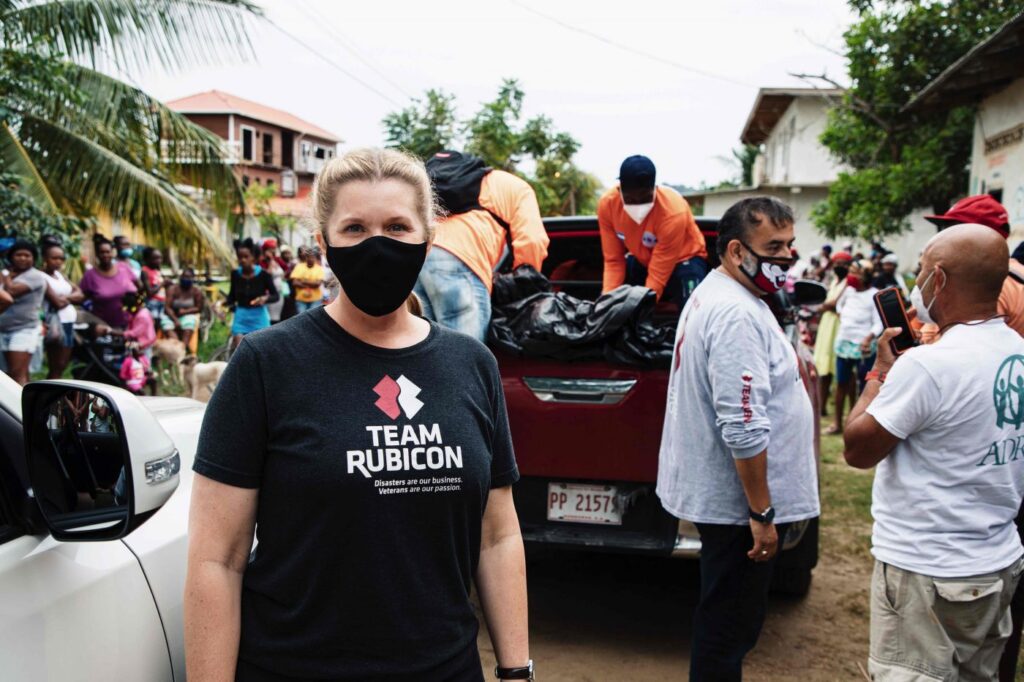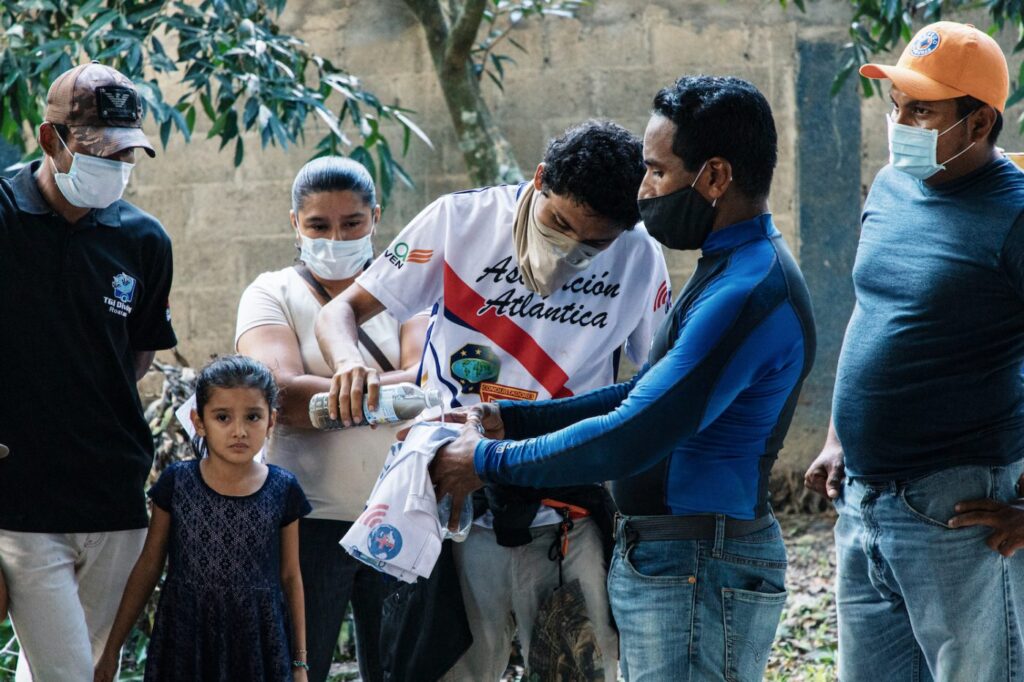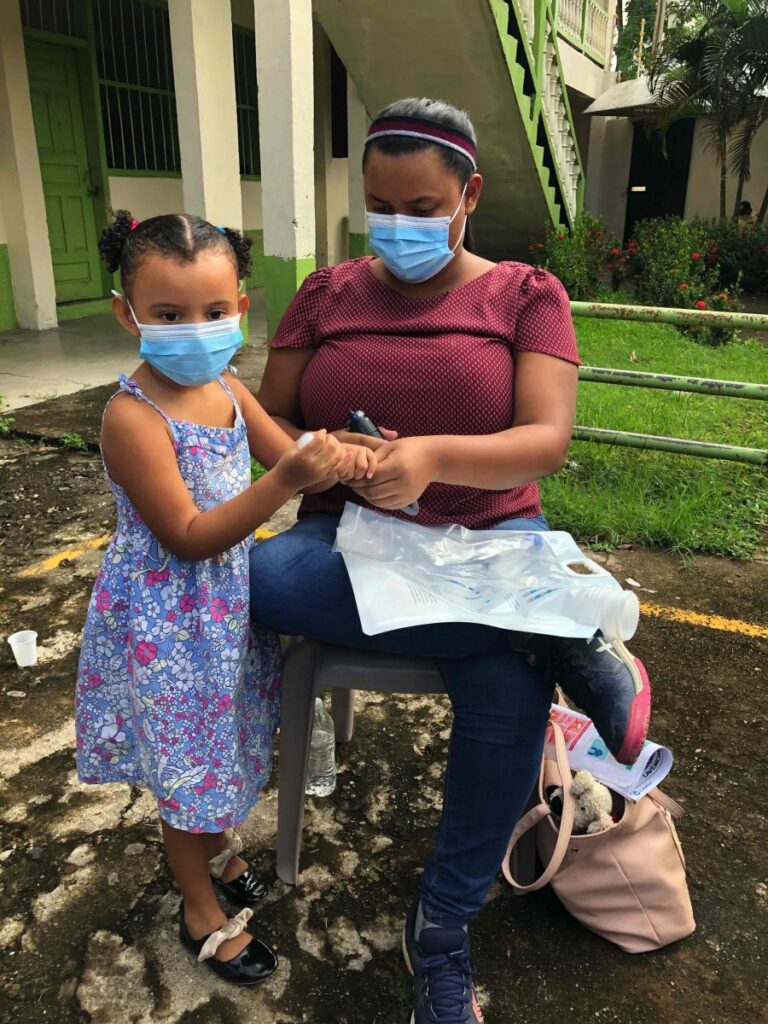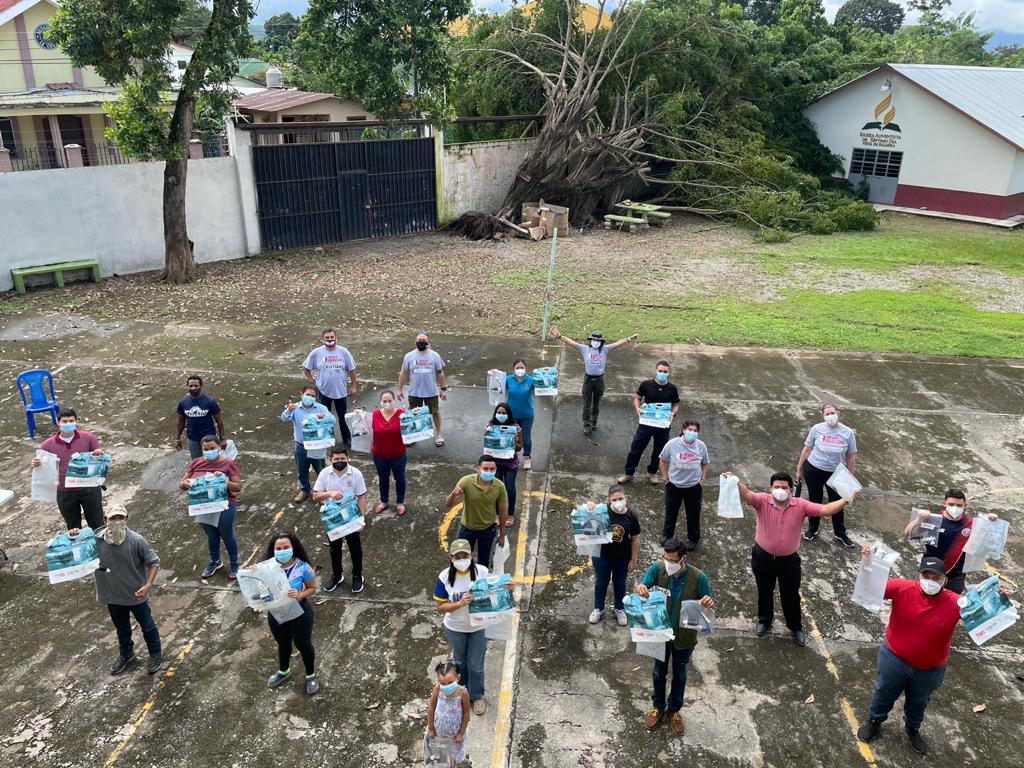A horse had just peed in the puddle, but Greyshirt Kimberly Carmody was going to drink out of that puddle anyway.
Standing in the mountains of Honduras in November, Carmody was among Team Rubicon volunteers helping distribute Sawyer water filtration systems to a community hit hard by back-to-back hurricanes. Part of that work meant not just delivering the emergency filtration systems, but also educating community members on how to use them. Including, demonstrating their efficacy.
Team Rubicon volunteers—or Greyshirts—from the U.S. and Canada had touched down in November, shortly after Hurricanes Eta and Iota wrought devastation across the country. First, they had helped train Adventist Disaster Relief Agency volunteers to use, and train others to use, those Sawyer water filtration systems. Then, ADRA had helped Team Rubicon locate a river valley that crossed a mountain and lead to communities untouched by outside aid. Together, over the course of two weeks, ADRA and the Greyshirts had traveled into remote villages that had been affected by one or both hurricanes, and where people had lost access to water, or where what water still flowed had been significantly compromised.

“After a hurricane hits, the big cities and big areas get all the love. So, we were in a small area, a smaller town that wasn’t really getting lots of help,” says Carmody. “They had seen nobody. No one had helped them; no disaster aid had come in; nothing.”
What the communities had seen, however, was evidence of the hurricanes and the resulting dirty water in the health of their children. According to UNICEF, about 1,800 children across the globe die every from diarrhoeal diseases due to poor water, sanitation, and hygiene. That number increases after major disasters, like hurricanes, because water sources are compromised. In the mountains of Honduras two weeks after the hurricanes there had been a huge increase in diarrhea in children. Where the local doctor usually saw about five cases of diarrhea in children a week, he was now seeing five to seven a day.
All that since the hurricane, which pretty much told the Greyshirts and ADRA everything they needed to know. The villages needed water filtration systems, and they needed to learn how to use them, fast.

To demonstrate the filters and their efficacy to the villagers, Carmody and team began using themselves as guinea pigs.
“As we were teaching people about this, we were actually taking water from the street—from puddles where horses were standing—putting filters on, filtering the water, and then we were drinking it,” says Carmody with a chuckle. “It made a huge impact on people to see that, well, these people are really drinking this.”
Which is where the horse comes in. “Our first time we did it we were about to drink the water and one of the guys goes, ‘You know that puddle you took the water from, from a horse peed in there right before you got here’.”
Okay, said the Greyshirts, we’re still doing this. And drink the newly filtered water they did.
Drinking that puddle water served to build trust within the community.
“Once people once they understood why we were there and what we were doing there, and that we weren’t selling anything—that we weren’t expecting anything from them and that we just wanted to help—they were very receptive,” says Carmody.

It wasn’t just the heads of households who the Greyshirts and ADRA trained, either. The filtration system is so easy to use that Carmody handed it to four-year-old Juliana, whose mother was training to distribute the filters in other villages, and asked if she could do it. “Of course I can,” said Juliana. And just like that, the tot assembled the filter perfectly.
“When she did that I knew that our training—despite the language barrier, despite everything else—was working,” says Carmody. “Because if you teach a four-year-old how to put a filtration system together, you can teach anybody how to put it together.”
And help end a rash of illnesses among kids her age in the process.




